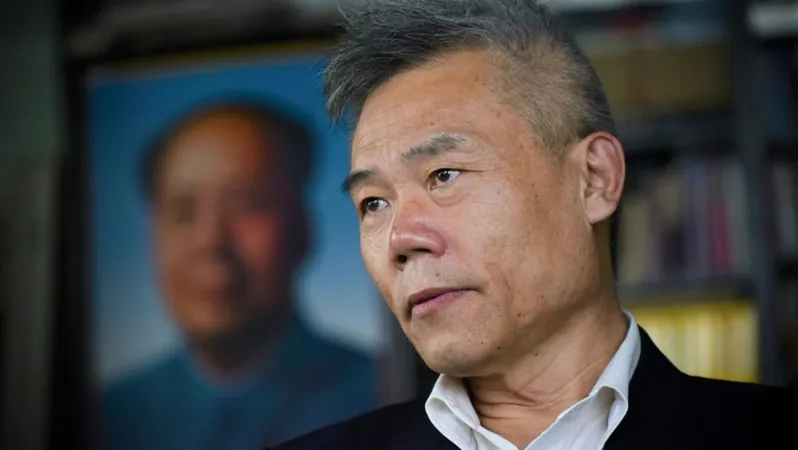
China Silences Controversial Ultra-Nationalist Blogger Sima Nan for a Year: What It Means for Free Speech
2024-11-12
Author: Nur
In a surprising turn of events, Chinese internet regulators have imposed a one-year ban on the outspoken ultranationalist blogger Sima Nan, also known as Yu Li. The ban, confirmed by sources familiar with the matter, has sent ripples through China's digital landscape, which is already heavily regulated.
Sima Nan, notorious for his aggressive anti-Western rhetoric and critical stance against various domestic issues, has not provided any comments regarding the ban. His last social media activity occurred on November 8, 2023, where he made controversial remarks about the US presidential election, even humorously claiming to be part of Trump’s campaign team in Beijing.
With more than 44 million followers across Chinese social media platforms, including Weibo and Douyin, Sima Nan has long been viewed as a polarizing figure. He gained prominence in the 1990s for his vehement criticism of the Falun Gong movement—an organization that has been outlawed by the Chinese government. His passionate posts often intertwine Communist Party ideology, which some perceive as treading dangerously close to state-sponsored nationalism.
In recent years, Sima has targeted various entities, most notably accusing tech giant Lenovo of mismanagement and insinuating that they colluded with foreign powers, all while dragging state interests into the debate. His inflammatory positions gained significant traction among nationalistic online circles, further entrenching his role as a broader symbol of the nationalistic left online.
Faced with tightening censorship measures and a push to maintain a favorable environment for private enterprise, the Chinese government appears to be cracking down on extreme nationalist voices as well as perceived Western influences. This latest ban on Sima Nan aligns with recent moves by Chinese authorities to boost the confidence of both domestic and foreign investors—an increasingly crucial goal as Beijing grapples with economic challenges and market reforms.
Amid speculation about the rationale behind Sima Nan’s ban, experts suggest that his extreme views could undermine investor confidence amidst China's ongoing commitment to reform and open-market policies. In an era where private businesses need reassurance of the government’s support, regulating figures like Sima Nan may be seen as a necessary step.
Historically, Sima Nan has faced short-term bans before, with notable absences from social media in the past. However, this year-long prohibition marks a significant escalation, symbolizing how far the government might go to control narratives that diverge from its vision of harmonious nationalism.
This situation raises broader questions about freedom of speech in the digital age in China. With the landscape more fraught than ever, the consequences of dissent—whether from ultra-nationalists or liberal voices—illustrate the delicate balance that the Chinese government must navigate in their control over public discourse.
Stay tuned for updates as this fascinating story continues to unfold amidst the complexities of China’s social media landscape and state governance.




 Brasil (PT)
Brasil (PT)
 Canada (EN)
Canada (EN)
 Chile (ES)
Chile (ES)
 España (ES)
España (ES)
 France (FR)
France (FR)
 Hong Kong (EN)
Hong Kong (EN)
 Italia (IT)
Italia (IT)
 日本 (JA)
日本 (JA)
 Magyarország (HU)
Magyarország (HU)
 Norge (NO)
Norge (NO)
 Polska (PL)
Polska (PL)
 Schweiz (DE)
Schweiz (DE)
 Singapore (EN)
Singapore (EN)
 Sverige (SV)
Sverige (SV)
 Suomi (FI)
Suomi (FI)
 Türkiye (TR)
Türkiye (TR)